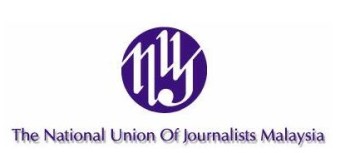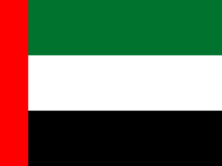
(Credit: the National Union of Journalists, screenshot)
Malaysia’s National Union of Journalists proposed a “fair reporting pledge” for its members, Malaysian news site Malaysia Kini reported.
The union’s executive council OK’ed the measure but is calling for its delegates to vote on the “pledge” this year. The executive council has 16 members, according to its website. The council’s “delegates conference” is planned for either “late February or early March,” according to Malaysia Kini.
According to its website, the union represents “some 1,400 journalists” and is a 50-year-old organization. The NUJ’s general secretary Anbalagan Veerasamy told iMediaEthics by e-mail that the pledge would call for its journalists to “file a balanced report” and follow the union’s ethics code. The ethics code isn’t “legally binding, but should prick the conscience of those who fail or decline to follow,” he wrote. He added that “we cannot penalise [violators] because we do not have a mechanism in place.”
He noted that the union can’t “control what is published” or stories after they have been turned in, it wants to advocate “fair reporting” in the media for the “duration of the general election.”
The pledge is in response to claims that Malaysian journalists act as “stenographers and note takers prone to regurgitating the views of their political and commercial masters,” Malaysia Kini reported.
In response to the calls, commenters on Malaysia Kini called for editors and media owners to also make the “fair reporting pledge.”
The NUJ’s Veerasamy told iMediaEthics that the NUJ has “reporters, photographers and editorial artists” from “seven newspapers and one magazine” in its membership. He added that the union is “in the process of recruiting journalists from the on-line media” but hasn’t included any broadcast journalists. He also noted that “our constitution prohibits us from recruiting journalists from state-run media agency, that is Bernama, government radio and TV.”
Malaysian journalist Teh Eng Hock also told iMediaEthics by e-mail more about the union. He is a journalist with the Star newspaper and a chairman for one of the NUJ’s eight branches, the NUJ-Star branch.
Eng Hock told us that “membership is not mandatory” in the union, and that “non-executive staff journalists (ie below mid-management) from any of the 11 newspapers can apply to join.” The group is “essentially” just a union and only represents print journalists.
As a union, its “foremost priority is to ensure reasonable wages and benefits for the members, as well as to remind employers to provide a conducive workplace for journalists,” Eng Hock wrote. The union “also mediates grievances between employee and employer, and if unresolved, would represent the journalist at the Industrial Relations Department and subsequently Industrial Relations Court.”
Veerasamy added that the NUJ will “represent members in collective bargaining” and has a “Journalist Welfare Fund to aid members who are ill and hospitalised or retrenched.” The group also will provide “payment to members who retire at age 55” if they have been a member “for 60 consecutive months.”
Veerasamy noted that the gruop’s “objective in the constitution is to defend Press Freedom and to maintain high ethical standards in journalism.”
According to Eng Hoc, Malaysian journalism doesn’t have a regulatory body. However, he noted “there are several organizations related to journalism” including the Centre for Independent Journalism, the Malaysian Press Institute, the Malaysian Press Photographers Association, the National Press Club and the Foreign Correspondents Club.






Comments Terms and Conditions